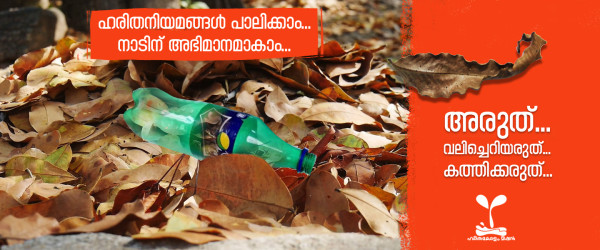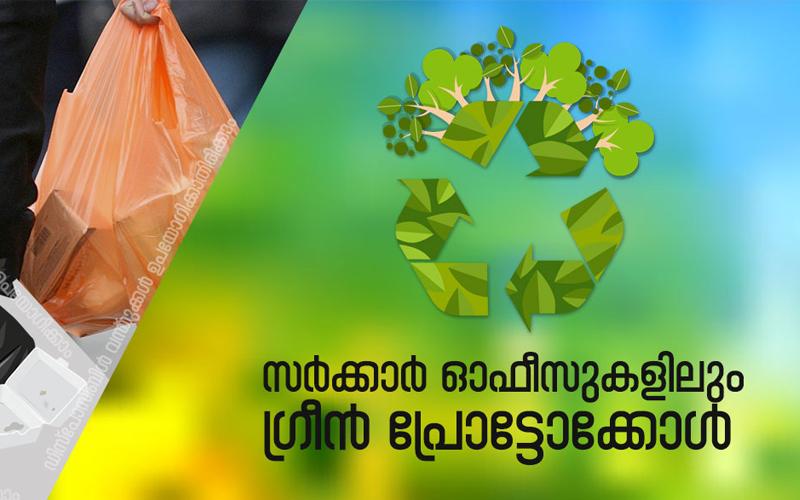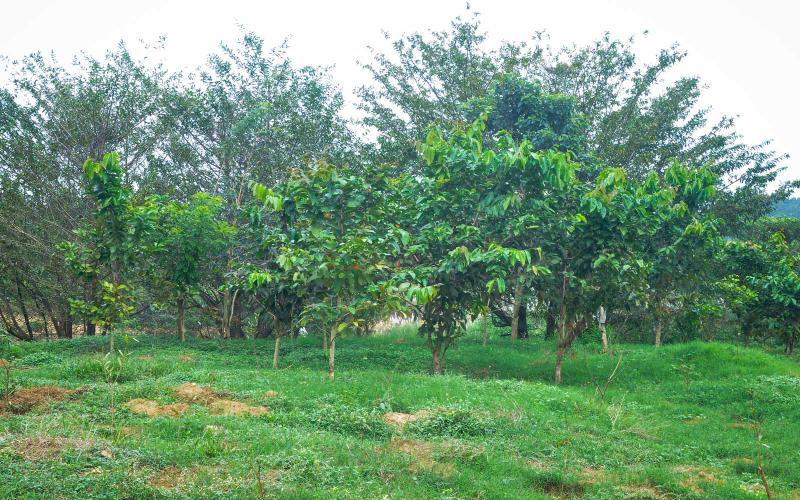What is Green Protocol?
The methods adopted for eliminating waste generation mitigation of waste, grading of waste and its scientific way of disposal are known as Green Protocol. The focal point is that the individuals and society at large can contribute their mite in waste management in umpteen ways. If conscientious efforts are taken to minimize waste generation with a civic sense, gradually it becomes our second habit and ultimately results in decreased waste production. Waste can be sorted out and graded into different levels. Those which could be recycled and those which could be turned into compost could be separated and processed scientifically. Avoiding excessive use of consumables and ensuring zero residuals are another way which will go a long way in mitigating waste generation. The green protocol can be applied in our personal life, family, office, public functions, weddings, meetings and conferences, festivals and in all walks of life. What is important is to instal the Green Protocol as a habit and custom.

Green Protocol envisions to dispense with the use of disposable materials and to opt for reusable materials as a part of mitigating waste generation so that the degradable residues can be converted either into compost manure or as biogas. It also ensures the elimination of health hazards created by the way of burning plastic and such non-degradable solid waste and also throwing of garbage in public places. Such practices of Green Protocol in festivals grounds, meetings and public conferences, wedding ceremonies, where people assemble in large number, will ensure the reduction of waste materials to a larger extent.

Why Green Protocol?
Man’s irresponsible ways of life have stifled the environment and pushed him to a precarious stage. Rains have become erratic. It either becomes torrential causing floods or dries up creating drought. Heat goes up to the extreme levels causing sunstrokes. Life on this planet has almost become suffocating. Kerala has no exception to this. The quality and quantity of waste generation are ever increasing, causing imminent catastrophe to mankind. Of late, globalization, unbridled consumerism and marketisation have left mankind to take asylum amidst heaps of waste, pollution, garbage, epidemics and endemics. Resultantly, super speciality hospitals popped up like mushrooms. It is for their treatment that many a Malayalee either sell their property or end up in debts. They spend around an average of Rs 5000/- per annum for their treatment. The loss of health leads to financial exigencies resulting in a bleak future. This can be avoided with a little bit of care and concern over our health, hygiene and environment. ‘Good hygiene through Green Protocol” is the new catch word of this season. The objective of the Green Protocol is to mitigate the generation of waste instead of searching for ways and means to dispose of the waste that we created.

Implementation of Green Protocol?
- Mitigating the quantity of waste.
- Grading of waste at the source of generation.
- Use of recyclable materials to the possible extent.
- Optimize the use of reusable materials
- Eliminating all disposable materials from day to day life.
- Disposable materials shall be substituted with eco-friendly materials like stainless steel, glass, ceramic vessels, cloth bags and so on, which can be reused by washing.
- Banned plastic materials shall be avoided completely and Government norms in this regard shall be followed strictly.
- Sorting of biowaste and non-degradable wastes and they shall be processed.
- Converting the biowaste as compost manure or as biogas by erecting biogas plants.
- Non-degradable materials like plastics shall be separated, washed, dried up and cleaned for recycling. Such materials shall be given either to scrap vendors or to the local bodies for processing.
- E-wastes shall be kept in separate storage containers and be given to authorized scrap vendors, clean Kerala Company or to the local bodies at right intervals.
- Use and throw covers shall be avoided. Eco-friendly bags made of cloth, jute, paper or coir shall be used for purchases. Purchases shall be made in bulk as far as possible.
- Washable containers which can be reused shall be kept ready while purchasing food items from the restaurants.
- The habit of throwing garbage at public places shall be stopped forthwith. The waste shall be sorted out and be given to these authorized vendors or institutions for recycling.
- Flex banners shall be substituted with cloths. Eco-friendly materials shall be used for decorations.
- Consume as per demand – avoid wastage.










